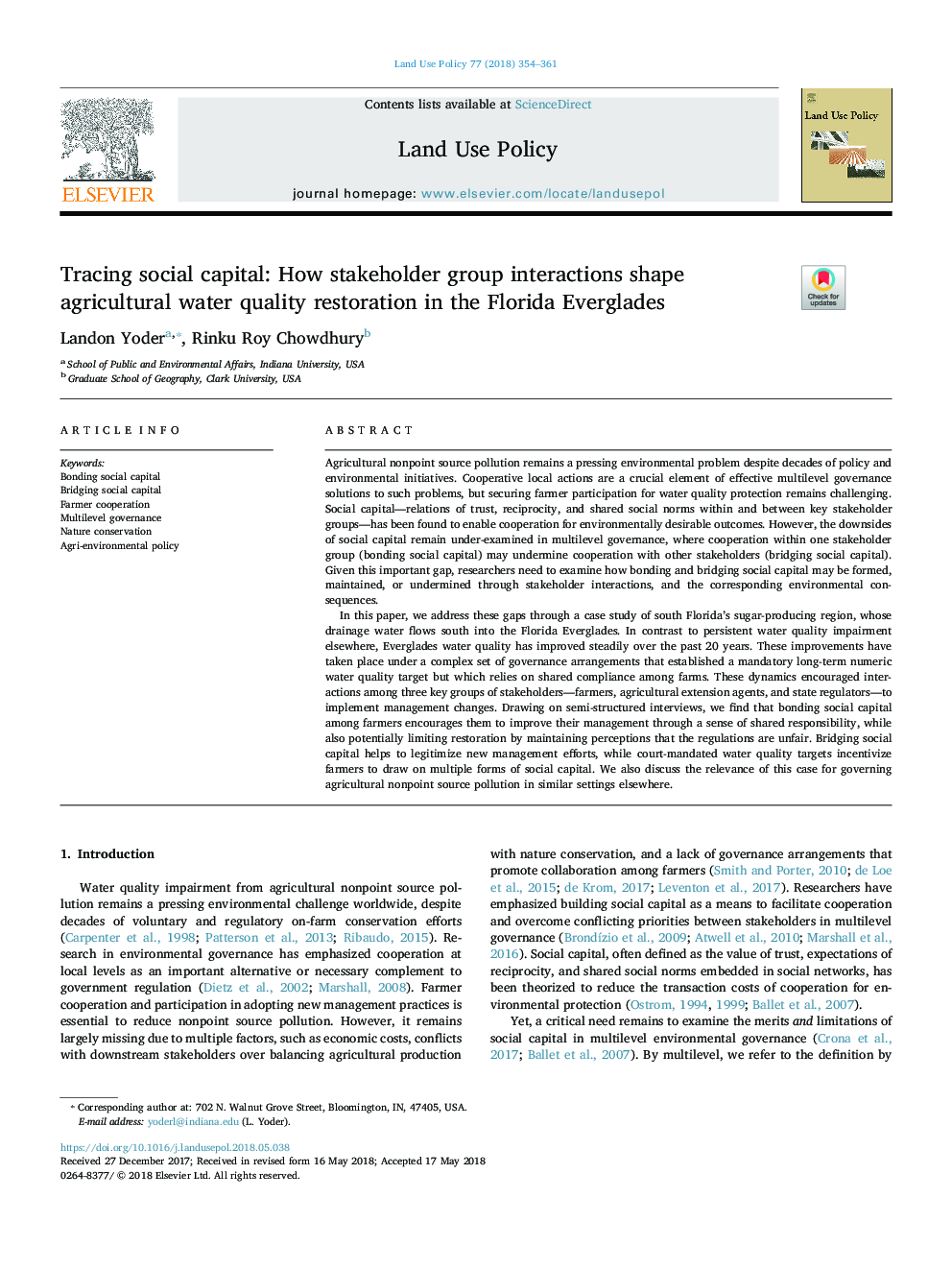| Article ID | Journal | Published Year | Pages | File Type |
|---|---|---|---|---|
| 6546155 | Land Use Policy | 2018 | 8 Pages |
Abstract
In this paper, we address these gaps through a case study of south Florida's sugar-producing region, whose drainage water flows south into the Florida Everglades. In contrast to persistent water quality impairment elsewhere, Everglades water quality has improved steadily over the past 20 years. These improvements have taken place under a complex set of governance arrangements that established a mandatory long-term numeric water quality target but which relies on shared compliance among farms. These dynamics encouraged interactions among three key groups of stakeholders-farmers, agricultural extension agents, and state regulators-to implement management changes. Drawing on semi-structured interviews, we find that bonding social capital among farmers encourages them to improve their management through a sense of shared responsibility, while also potentially limiting restoration by maintaining perceptions that the regulations are unfair. Bridging social capital helps to legitimize new management efforts, while court-mandated water quality targets incentivize farmers to draw on multiple forms of social capital. We also discuss the relevance of this case for governing agricultural nonpoint source pollution in similar settings elsewhere.
Keywords
Related Topics
Life Sciences
Agricultural and Biological Sciences
Forestry
Authors
Landon Yoder, Rinku Roy Chowdhury,
